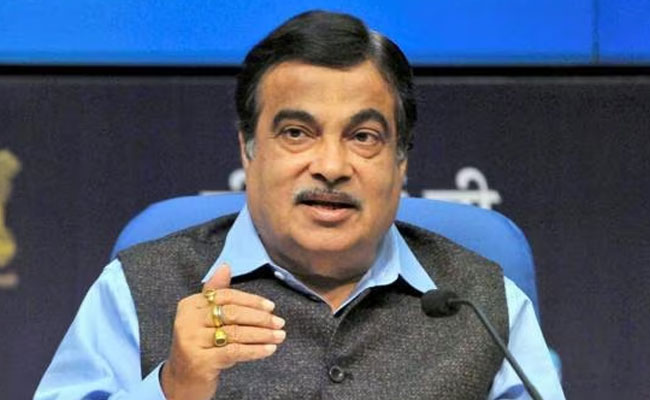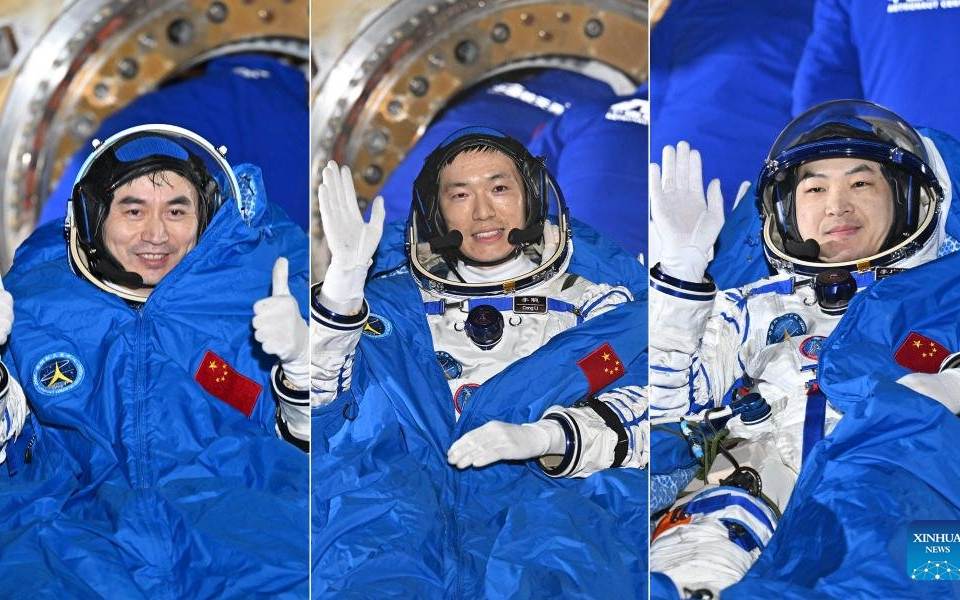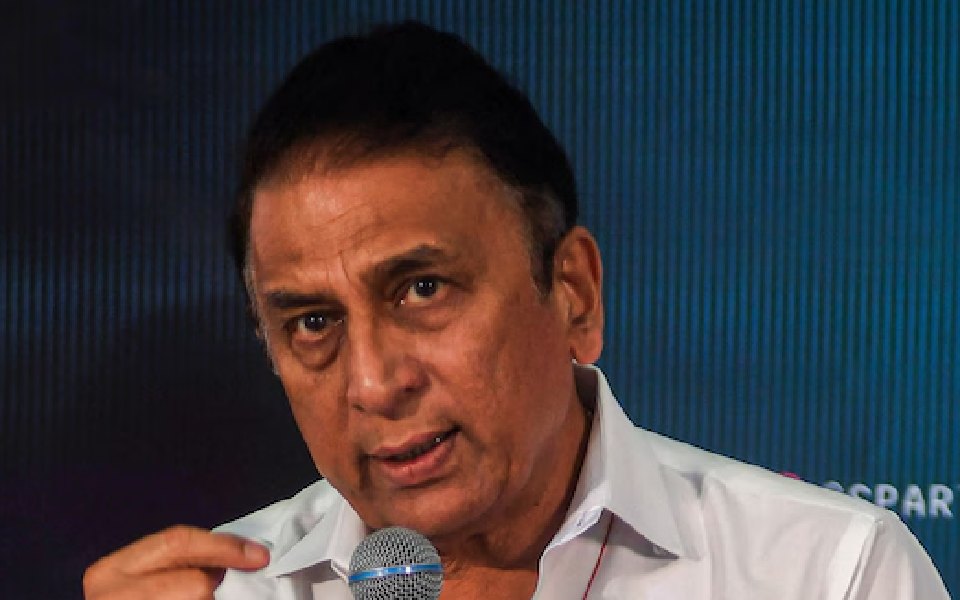Chennai (PTI): The Bengaluru-Chennai express highway will be launched by this year-end or January 2024 and it will prove crucial in reducing the travel time between the two metros to just two hours, Union Minister for Road Transport and Highways Nitin Gadkari said on Thursday.
Also, with the massive infrastructure being built across the country, Chennai will soon be connected with Delhi through the access-controlled highway project, he said.
"I reviewed the progress of National Highways projects in Chennai today. The Bengaluru-Chennai express highway will start by this year-end or January 2024. So, you can launch luxury buses and sleeper coaches in this sector," the minister said, addressing the 75th anniversary celebrations of Ashok Leyland here.
Gadkari, who earlier launched the Ashok Leyland's IeV series, India's first electric commercial vehicles in its category, said there's a great requirement for electric buses in the country. "We are making good roads. We are connecting Delhi to Chennai via Surat, Nasik, Ahmednagar, Kurnool, Chennai (and beyond to), Kanyakumari, Thiruvananthapuram, Kochi (and also to) Bengaluru and Hyderabad, through the access-controlled highways project," he said.
His ministry is in the process of building an electric cable highway between the national capital and Jaipur, he said and urged Ashok Leyland and other players to produce vehicles that could use bio fuels or alternative energy, such as e-vehicles, in a big way and help the Centre achieve the goal of a five-trillion-dollar economy.
"I am working on diversification of agriculture to energy and power sector since 2004. Ten days ago, I launched a 100 percent bio-ethanol vehicle. In Bengaluru I had launched Ashok Leyland's vehicle which can run on methanol-blended fuel. My dream is to ensure the production of methanol trucks in India," Gadkari said.
The Indian Oil Corporation is producing bio-ethanol-based fuel for automobiles and ethanol aviation fuel too. "Soon, the farmers of Tamil Nadu could help produce ethanol fuel from food grains," the minister said.
Later, speaking to reporters, he said he was satisfied over the pace of NH projects and that the work on the Chennai Port-Maduravoyal Elevated Expressway project would begin soon.
The IeV series launched by the minister are India's first electric commercial vehicles in its category and aims to provide efficient and eco-friendly solutions for last-minute transportation needs.
The leV, produced by Ashok Leyland's EV arm Switch Mobility, presents an attractive value proposition for MSMEs, cottage industries, and e-commerce in the country with low total cost of ownership coupled with a commitment to high uptime. This is India's first fuel cell bus. Also, Ashok Leyland unveiled a new 9m hydrogen fuel cell bus, the country's first hydrogen internal combustion engine truck, on the occasion.
"As we celebrate this milestone (of 75 years)...we renew our pledge to further shape the future of the CV (commercial vehicle) industry," Ashok Leyland's chairman Dheeraj Hinduja said, adding, "We have set our sights on pioneering sustainable transportation solutions and aim to support India's economic development for years to come."
Chief Executive Officer of Switch Mobility Mahesh Babu said the launch of the Switch IeV series electric vehicles is a defining moment for the EV arm, having established a strong reputation in the e-bus market.
At the event, Nitin Gadkari said hydrogen as an alternative fuel was the future. "The import of fossil fuel is a big problem for the country in terms of economy and pollution. So, it is imperative to explore and utilise bio fuels for sustenance, and reduce the logistics cost to single digit in about three to four years, from about 16 per cent at present," he said.
Further, this would make India competitive and a global player in exports, Gadkari added.
Let the Truth be known. If you read VB and like VB, please be a VB Supporter and Help us deliver the Truth to one and all.
Beijing, Nov 4: Three Chinese astronauts who spent six months developing China’s low orbit space station returned to Earth safely early Monday, the China Manned Space Agency (CMSA) said.
The capsule of the spaceship Shenzhou-18' carrying astronauts Ye Guangfu, Li Cong and Li Guangsu, touched down at the Dongfeng landing site in north China's Inner Mongolia Autonomous Region at 1:24 am (Beijing Time).
The three astronauts, after staying in orbit for 192 days, were all in good health and the Shenzhou-18 manned mission was a success, the CMSA said.
Ye, the Shenzhou-18 mission commander, has become the first Chinese astronaut with an accumulative spaceflight time of more than a year, setting a new record for the longest duration of stay in orbit by a Chinese astronaut.
He served as a crew member in the Shenzhou-13 mission from October 2021 to April 2022.
"Chinese astronauts have flown to space in successive missions. I believe that the record of the duration in orbit will be broken in the near future," Ye said.
Another astronaut Li Guangsu said that they grew two types of plants -- cherry tomatoes and lettuce -- and they had harvested some lettuce leaves for food.
"Being able to eat fresh vegetables in space is truly a blessing. These green plants have also brought a touch of green and good cheer to our busy work," Li was quoted by state-run Xinhua news agency.
China launched the Shenzhou-18 manned spaceship in April this year.
During the mission, the Shenzhou-18 crew utilised the scientific experiment cabinets and extravehicular payloads to carry out dozens of experiments in the fields of basic physics in microgravity, space material science, space life science, space medicine and space technology, Xinhua report said.
The three were relieved by another set of three Chinese astronauts, including a woman who docked with the orbiting space station on October 30.
China changes crew for the station every six months.
China built its space station after it was reportedly excluded from the International Space Station (ISS) over concerns that China's space programme is manned by its military, the People's Liberation Army, (PLA).
The two robotic arms of the station, especially the long one which has the ability to grab objects including satellites from space, drew international concerns.
Early this month China announced its plans for the further development of space programmes which included launching a manned lunar mission, construction of a lunar space station, exploration of habitable planets and extra-terrestrial life to expand its space programme in the next few decades.





